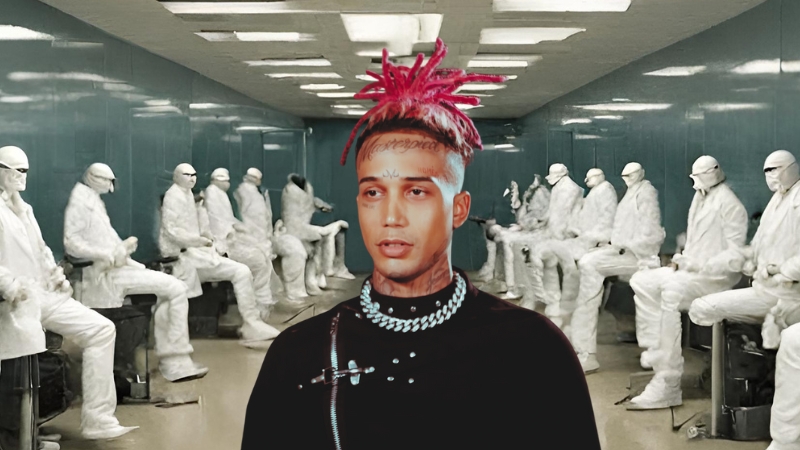Few hip-hop stories have generated as much intrigue and skepticism as the claims made by rapper Kid Buu. He boldly asserts that he is not the result of natural birth but rather a second-generation clone. This article delves deep into Kid Buu’s life, his controversial claims, and the reactions from both the public and the scientific community.
Kid Buu is a rapper from Florida who named himself after a character from ‘Dragon Ball Z. He became famous through his presence on SoundCloud and tracks like “Dead Roses” and “Double Up.” He is known for his unique persona and style, including his distinctive pink hair and tattoos. However, he gained even more attention after making the extraordinary claim that he was a clone, further increasing his fame.
Buu gained notoriety after claiming to be a “second-generation clone.” He stated that his original, or “first-gen,” self was born in New Jersey, while his clone was created in Canada. In various interviews and social media posts, Kid Buu talked about having a fraternal twin and being raised by a single mother. He also shared his belief in cloning technology and its potential to grant immortality.
The controversial figure claims to have cloned himself and has presented evidence to back up his claim. The evidence includes a supposed clone model number and a video where he introduces someone he alleges to be his clone. The video shows two very similar individuals with matching tattoos and hair colors. This has led to a mix of amazement and disbelief among viewers. However, skeptics point out the lack of scientific proof and suggest that the other individual could be Kid Buu’s identical twin brother.
The concept of cloning has been a popular topic in science fiction for a long time, but Kid Buu’s statements have now made it a part of hip-hop culture. People have compared his claims to rumors about celebrities such as Gucci Mane, who was said to be a clone in jest after his transformation following a period of incarceration.
Although human cloning is a subject of ethical debate and scientific research, there is currently no confirmed evidence that human cloning has been accomplished, much less made available to the public. Experts in genetics and bioethics have repeatedly debunked such claims as unsubstantiated and lacking credibility.
Kid Buu’s story of being a clone of a clone has undoubtedly added an element of mystery to his personality. Whether it is a clever marketing tactic or a genuine claim, his story prompts us to consider the limits of science and the role of fame in our current era. As we advance technologically, the line between reality and science fiction may become increasingly indistinct.
If you think this Kid Buu’s story isn’t possible, think again. Clonaid is an actual human cloning organization.
Human cloning is a topic that sparks much debate in the areas of science and ethics. At the center of this controversy lies Clonaid, a company that claims to have successfully cloned a human being. This article delves into the origins of Clonaid, their claims, and the varied reactions they have received in response to their contentious assertions.
Clonaid was established in 1997 as a company registered in the Bahamas. It strongly ties with the Raëlian Movement, a religious group that believes extraterrestrials created life on Earth. The company’s overarching goal is to achieve immortality, and it views cloning as a means to that end.
In 2002, Brigitte Boisselier, the former CEO of Clonaid, made a public statement announcing the birth of “Eve,” who she claimed was the first human clone. This announcement caused much controversy and sparked intense ethical discussions and demands for regulation from the scientific community and the public.
The scientific community has responded to Clonaid’s claims with skepticism. Cloning is a process that involves creating genetically identical copies of organisms. While it has been successfully performed on animals, such as Dolly the sheep, human cloning presents significant ethical and technical challenges. Experts have criticized Clonaid for not providing verifiable evidence and have raised concerns about the potential risks associated with cloning technologies, including malformations and other health complications.
After Clonaid announced its plans, legal action was taken against it. Some tried to appoint a guardian for Eve, while others demanded DNA verification tests to prove the claims. Politicians and ethicists also expressed concerns about the lack of oversight and the potential misuse of cloning technology. This is where Clonaid stands today.
Despite the initial uproar in recent years, Clonaid has maintained a low profile. The company’s website lists various services related to cloning. However, there is no verified evidence to support their ability to clone humans. The broader scientific consensus remains that human cloning is not yet a reality and that Clonaid’s claims are unfounded.
Clonaid represents the intricate overlap between science, religion, and ethics. Its audacious assertions have compelled society to confront the potential benefits and dangers of human cloning. As scientific progress continues, ethical principles must guide our exploration of these profound technologies.



